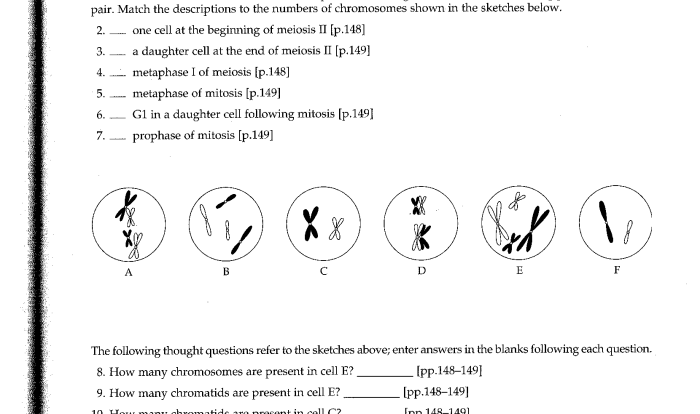Biology 1710 UNT Exam 1 looms on the horizon, a beacon of knowledge calling students to embark on a journey of scientific discovery. This exam is not merely a test of memorization; it is a gateway to a deeper understanding of the fundamental principles that govern life itself.
Within this comprehensive guide, we will delve into the intricacies of the exam, empowering you with the tools and strategies you need to excel. From key concepts to effective study tips, no stone will be left unturned in our quest for biological mastery.
Introduction
Welcome to Biology 1710! This introductory course delves into the fundamental principles of biology, the study of life. Exam 1 is an integral part of your learning journey, designed to assess your understanding of core concepts covered in the first section of the course.
The exam format comprises multiple-choice questions, ensuring a comprehensive evaluation of your knowledge. Each question is carefully crafted to test your ability to recall, analyze, and apply biological principles. By successfully navigating this exam, you will demonstrate a solid foundation for your continued exploration of the fascinating world of biology.
Key Concepts
Biology 1710 Exam 1 encompasses a comprehensive range of fundamental concepts that form the foundation of biological sciences. These concepts delve into the intricacies of life processes, exploring the principles and theories that govern the functioning of living organisms.
The exam emphasizes the following major topics:
- Cell Structure and Function:Understanding the fundamental unit of life, its components, and their roles in maintaining cellular homeostasis and performing vital life processes.
- Biomolecules:Exploring the diverse range of organic molecules essential for life, including their structure, properties, and functions in cellular processes.
- Cell Division:Investigating the processes of mitosis and meiosis, their significance in growth, development, and genetic variation.
- Genetics:Delving into the principles of heredity, including Mendelian genetics, DNA structure and function, and molecular genetics.
- Evolution:Exploring the mechanisms and theories that drive the evolution of life on Earth, including natural selection, genetic drift, and speciation.
Cell Structure and Function
This examines the fundamental components of cells, including the plasma membrane, cytoplasm, nucleus, and various organelles. It explores the functions of these components in maintaining cellular homeostasis, carrying out metabolic processes, and facilitating cellular communication.
Exam Format
The exam will consist of multiple-choice questions, short answer questions, and essay questions.
Multiple-choice questions will test your knowledge of key concepts and terms. Short answer questions will require you to explain a concept or answer a question in a few sentences. Essay questions will require you to write a short essay on a topic related to the course material.
Multiple-Choice Questions
- Which of the following is NOT a characteristic of living organisms?
- Growth
- Reproduction
- Ability to make decisions
Short Answer Questions
- Explain the difference between a prokaryotic and a eukaryotic cell.
Essay Questions
- Discuss the role of natural selection in evolution.
Study Tips
Preparing for your Biology 1710 exam requires a strategic approach. Here are some effective study strategies to help you succeed:
To begin, create a study schedule that accommodates your learning style and time constraints. Break down the course material into manageable chunks and allocate specific study times for each topic. Consistency is key, so stick to your schedule as much as possible.
Reviewing Course Material, Biology 1710 unt exam 1
Regularly review your class notes, textbooks, and any other course materials. Engage with the content actively by highlighting important concepts, taking notes, and summarizing key ideas. Utilize flashcards to test your understanding of definitions, processes, and terminologies.
Practice Problems and Questions
Solving practice problems and answering review questions reinforces your understanding and identifies areas where you need additional support. Seek out practice questions from your textbook, online resources, or past exams. Reviewing the solutions will help you understand the problem-solving process and improve your critical thinking skills.
Biology 1710 UNT Exam 1 was quite challenging, but I’m sure you’ll ace it. If you need a break from studying, check out this quiz on Act 3 of The Crucible. It’s a great way to test your knowledge and get a glimpse into the themes of the play.
Once you’re refreshed, you can get back to studying for Biology 1710 UNT Exam 1 and crush it!
Seek Clarification and Support
Don’t hesitate to seek clarification from your professor, teaching assistants, or classmates if you encounter difficulties with any concepts. Attend office hours, participate in study groups, and utilize online forums to engage with other students and ask questions.
Utilize Technology
Leverage technology to enhance your studying. Use educational apps, online simulations, and interactive resources to visualize complex concepts and reinforce your understanding. Many online platforms offer practice questions, flashcards, and study materials tailored to your specific course.
Sample Questions
Sample questions provide opportunities to practice the concepts covered in this exam and assess your understanding. The questions are designed to cover key concepts and exam formats. Detailed answer explanations are included to help you understand the rationale behind the correct answers.
The sample questions are not exhaustive and do not guarantee success on the actual exam. However, they serve as valuable study tools to identify areas where you may need further review and to build confidence in your preparation.
Question 1
Define the term “evolution” and explain its significance in biology.
Question 2
Describe the process of natural selection and provide an example of how it has shaped a species over time.
Question 3
Explain the difference between genotype and phenotype, and provide examples of each.
Question 4
Discuss the role of mutations in evolution and explain how they can lead to genetic variation.
Question 5
Analyze the concept of genetic drift and explain how it can affect the genetic diversity of a population.
Time Management
Time management is crucial during an exam to ensure you complete all sections within the allotted time. Effective time allocation allows you to maximize your score by covering all essential concepts.
Tips for Allocating Time Effectively
- Prioritize Questions:Begin with questions you are confident in to build momentum and avoid wasting time on challenging ones.
- Estimate Time per Question:Divide the exam time by the number of questions to determine an average time for each question.
- Stick to Time Limits:Adhere to the estimated time per question and move on if you get stuck. You can revisit challenging questions later.
- Utilize Blank Space:Write down important formulas, concepts, or notes in the blank spaces on the exam paper for quick reference.
- Avoid Guessing:If you are unsure about an answer, skip it and come back to it later. Guessing can lead to unnecessary point deductions.
Additional Resources: Biology 1710 Unt Exam 1
In addition to the materials provided in class, there are several additional resources available to help you prepare for the exam.
These resources include:
Online Materials
- The course website contains lecture notes, practice questions, and other helpful materials.
- The library has a number of books and articles on the topics covered in the exam.
- There are a number of online resources that can provide you with additional practice questions and study materials.
Videos
- There are a number of videos available online that can help you learn the material covered in the exam.
- These videos can be found on YouTube, Khan Academy, and other websites.
Study Groups
- Forming a study group with other students can be a great way to prepare for the exam.
- Study groups can help you stay motivated, learn from each other, and identify areas where you need additional help.
Quick FAQs
What are the major topics covered on Biology 1710 UNT Exam 1?
The exam covers a range of topics, including cell biology, genetics, evolution, and ecology.
What types of questions can I expect on the exam?
The exam includes multiple-choice, short answer, and essay questions.
How can I effectively prepare for the exam?
Effective preparation involves attending lectures, reviewing class notes, completing practice problems, and utilizing study resources.

